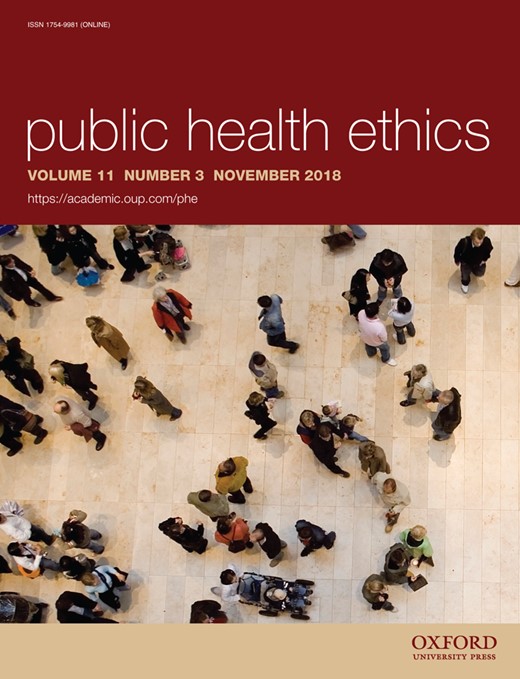-
Views
-
Cite
Cite
Kelsey Gipe, Samuel J Kerstein, Let Us Be Fair to 5-Year-Olds: Priority for the Young in the Allocation of Scarce Health Resources, Public Health Ethics, Volume 11, Issue 3, November 2018, Pages 325–335, https://doi.org/10.1093/phe/phy007
Close - Share Icon Share
Abstract
Life-saving health resources like organs for transplant and experimental medications are persistently scarce. How ought we, morally speaking, to ration these resources? Many hold that, in any morally acceptable allocation scheme, the young should to some extent be prioritized over the old. Govind Persad, Alan Wertheimer and Ezekiel Emanuel propose a multi-principle allocation scheme called the Complete Lives System, according to which persons roughly between 15 and 40 years old get priority over younger children and older adults, other things being equal. They defend this ‘modified youngest first’ principle in part by appealing to the greater social investment that has been made in 15-year-olds than in younger children. Ruth Tallman has proposed a distinctive defense of modified youngest first, one that appeals not at all to social investment. We find this defense wanting. Tallman’s argument depends on the idea, which we try to show to be implausible, that allocations should maximize the number of people in the midst of a possibly complete life who actually complete their lives. Moreover, Tallman does not justify the priority modified youngest first gives 15-year-olds over, for example, 5-year-olds. Tallman fails to dispel a serious shortcoming with modified youngest first: its fundamental unfairness to pre-adolescents.



